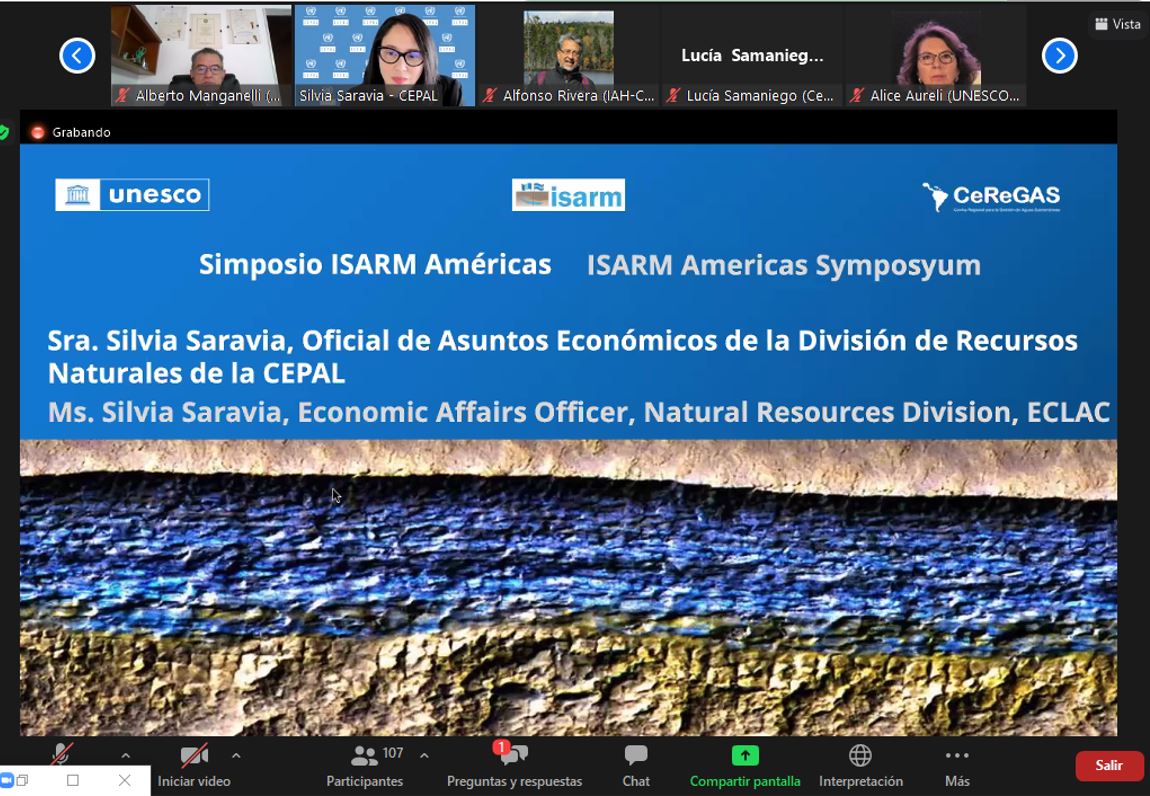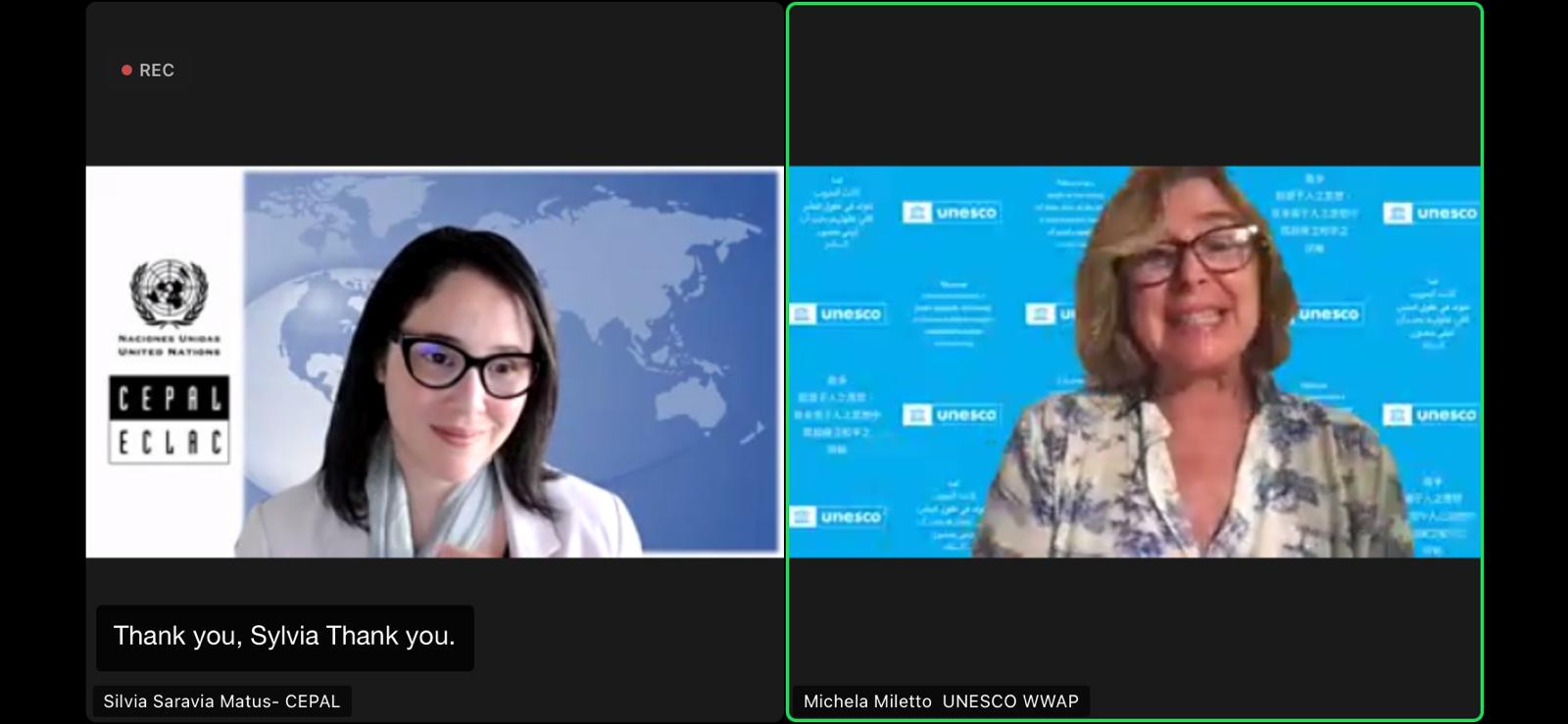ECLAC participated in the ISARM Americas Symposium
Work area(s)
Topic(s)
Teaser
The objective of the symposium was to present the work that is being carried out in the Latin American and Caribbean region on the governance of transboundary water resources, as well as the most up-to-date information on them.
Event information

Date
7 Sep 2021, 07:00 - 08:00Event type
Last Tuesday, September 7, ECLAC participated in the inauguration of the ISARM Symposium (Management of Transboundary Aquifers) for the Americas. This event was organized by the Intergovernmental Hydrological Program (IHP) and the Regional Center for Groundwater Management of Latin America and the Caribbean (CeReGAS).
During three days, the symposium had presentations of experts from international organizations, as well as representatives of government institutions from the countries of the Latin American and Caribbean region. ECLAC was represented by Ms. Silvia Saravia-Matus, from the Natural Resources Division, who participated in the session “Actions for the management of transboundary aquifers: a perspective of Regional Organizations and possibilities for collaboration with the ISARM Americas program ”.
Saravia-Matus started mentioning the collaborative work between ECLAC, CeReGAS, and PHI, on the management of groundwater and transboundary aquifers, research that will be published in the next United Nations World Report on the Development of Water Resources 2022.
Subsequently, she provided a general context of the state of groundwater in the region and the urgent need to improve the management and governance of these resources to ensure their protection and sustainable use. She also mentioned that transboundary aquifers face additional challenges, as their use and management depend on the coordination and understanding of various States. However, to date, there are some efforts that stand out, such as those made by the aquifers: Amazon, Guaraní, Pantanal, and Ocotepeque-Citalá.
Finally, Saravia-Matus presented ECLAC's recommendations for good groundwater management, highlighting: monitoring and information generation, technical training, public policy coordination, institutional strengthening, social participation, and development of legal and economic instruments. All these recommendations are part of the water management transition proposal promoted by ECLAC in the region, which pursues three objectives: i) Universalization of the human right to drinking water, ii) minimization of negative externalities, and iii) promotion of circularity.
Related content

Water dialogues in Latin America and the Caribbean to accelerate SDG 6
More than 3000 people from different social, economic, and environmental sectors in the region registered for the virtual event co-organized by ECLAC, UNESCO IHP, CONAGUA and the Federal Government…


ECLAC participated in the World Water Week 2021, organized by the Stockholm International Water Institute, through its Water and Energy Unit
Silvia Saravia-Matus, Economic Affairs Officer of the Natural Resources Division of ECLAC, participated in the World Water Week, recognized as the world's leading water event.